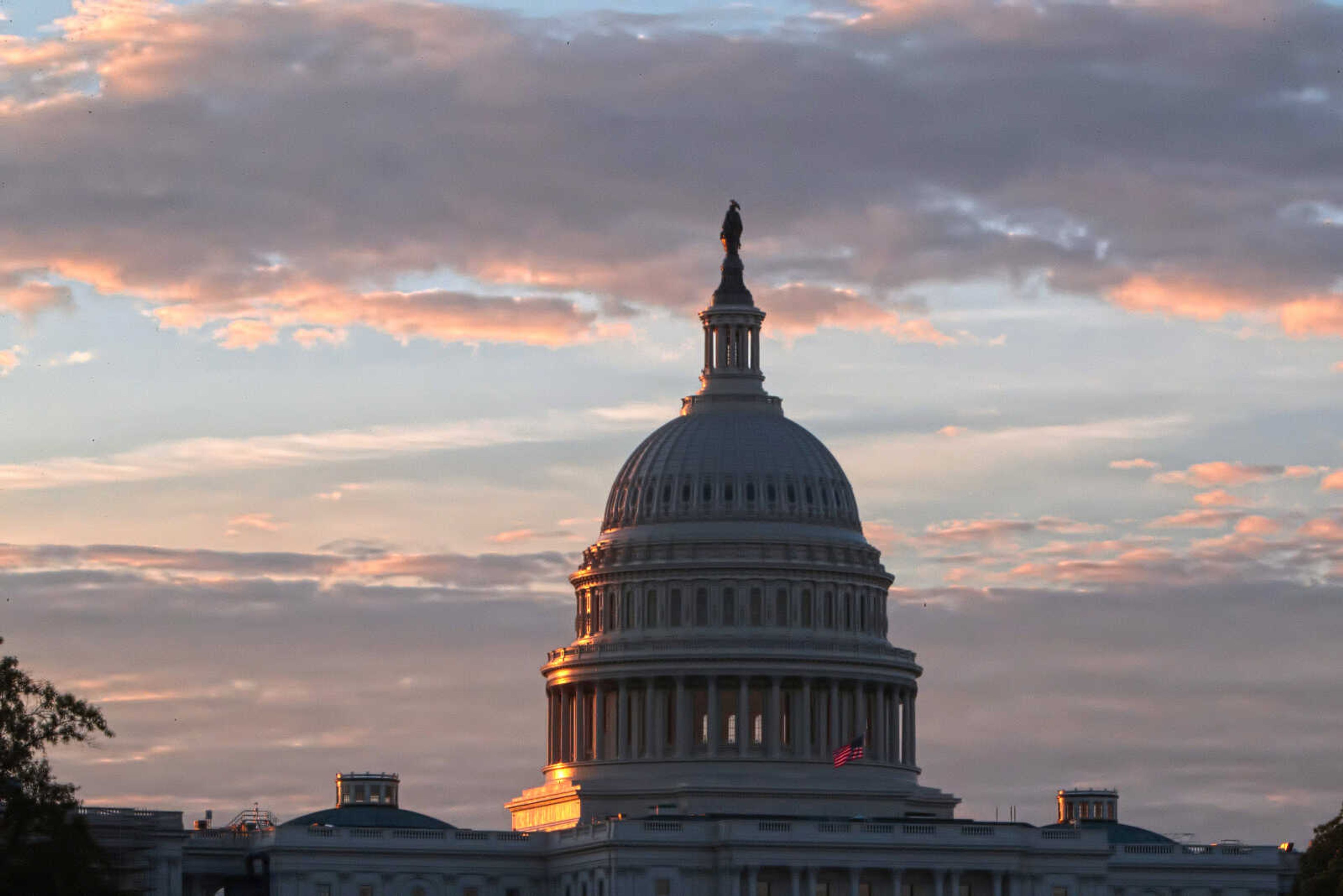2 new faces and old partisan standoffs as Congress returns
WASHINGTON -- There will be two fresh Senate faces and some familiar but stubborn clashes facing lawmakers today as Congress begins its 2018 session staring at the year's first potential calamity -- an election-year government shutdown unless there's a bipartisan spending pact by Jan. 19...
WASHINGTON -- There will be two fresh Senate faces and some familiar but stubborn clashes facing lawmakers today as Congress begins its 2018 session staring at the year's first potential calamity -- an election-year government shutdown unless there's a bipartisan spending pact by Jan. 19.
Looking to prevent a closure of federal agencies, top White House officials planned to meet at the Capitol today with House Speaker Paul Ryan, R-Wis., Senate Majority Leader Mitch McConnell, R-Ky., and each chamber's top Democrat.
Their goal is to find a compromise on raising limits on defense and domestic spending that eluded lawmakers before they left Washington for the holidays. In a statement Tuesday, White House spokeswoman Sarah Huckabee Sanders said President Donald Trump wants a two-year pact "that provides realistic budget caps and provides certainty for our national security," suggesting he was open to a bargain.
In one complication, Democrats have linked closure on the budget to protecting from deportation hundreds of thousands of immigrants who arrived in the U.S. illegally as children. Both parties have been divided over the so-called Dreamers.
Parachuting into this is a Democratic duo whose Senate arrivals are extraordinary.
Alabama's Doug Jones narrowly upended Roy Moore, the polarizing Republican, in a special election last month to become the first Senate Democrat in a quarter-century from one of the nation's reddest states. Minnesota Lt. Gov. Tina Smith will replace Democrat Al Franken, the one-time TV comedian who was becoming one of his party's most familiar liberal voices but resigned after a succession of sexual-harassment accusations. His last day in Congress was Tuesday.
Both new lawmakers will be sworn in when the Senate gavels into session today. The House returns next week.
Budget battle
Crunching budget caps imposed by a 2011 fiscal deal would freeze spending for the Pentagon and nondefense Cabinet departments at last year's levels. Republicans are in control but need Democratic votes to boost the caps, a priority of the GOP and members of both parties who want additional spending for domestic programs such as curbing opioid abuse.
A temporary spending bill expires Jan. 19 and federal agencies would begin closing their doors the next day without a budget pact or an agreement to keep talking. Boosting pressure on lawmakers to reach agreement, Defense Secretary James Mattis has said the Pentagon needs a full-year budget this month. House Armed Services Committee chairman Mac Thornberry, R-Texas, concurred Tuesday in an interview, saying he was "trying to think of a word that adequately describes how vital" that is.
Even so, opposition is likely among GOP conservatives opposing higher domestic spending. Democrats want military increases to be matched with nondefense hikes.
The White House's Sanders called a budget deal "our biggest and number one priority."
Immigration
Democrats have split over how far to push for legislation protecting Dreamers. Activists and some lawmakers have said they'd force a shutdown unless it's addressed, and House Minority Leader Nancy Pelosi, D-Calif., wrote colleagues Tuesday she's "firmly committed" to quickly enacting protections.
More than a dozen Hispanic Democratic House members forced a meeting last month with Senate Minority Leader Chuck Schumer, D-N.Y. Rep. Darren Soto, D-Fla., said Schumer assured the group Democrats "will lay it all on the line" to protect the immigrants when Congress returns.
Trump has rescinded an executive order by former President Barack Obama that gives the Dreamers protected status. Trump gave lawmakers until March to reach a legislative solution and has indicated a willingness to seek a deal with Democrats.
But many Republicans oppose renewing the protections, and Trump has taken a harder line recently. He tweeted Tuesday that Democrats "are doing nothing" on immigration and are "just interested in politics." Days earlier, he said there would be no deal without money for the wall along the Mexican border he touted during his presidential campaign. Democrats have said they're open to border security financing, not a wall.
McConnell said last month he'll bring immigration legislation to a vote if a bipartisan group of senators reach agreement.
GOP agenda
Trump, Ryan and McConnell meet at Camp David this weekend to discuss legislative plans.
It's unclear what can be achieved in an election year when Democrats have a chance to win congressional control. Ryan has talked up culling savings from benefit programs like welfare, but McConnell has shown little enthusiasm for that in a chamber he'll control by just 51-49 and would need a virtually unattainable nine Democratic votes to prevail.
The parties have suggested pushing a mammoth infrastructure bill, but Democrats haven't supported GOP ideas of financing it by cutting other programs.
Both parties want to renew expired financing for the Children's Health Insurance Program, which provides care for nearly 9 million low-income children. Also possible: revamping Obama's law overhauling financial market regulations, shoring up Obama's health care overhaul and renewing a foreign intelligence gathering program.
Disasters
The House approved $81 billion last month but the Senate is eying more. Democrats want additional aid for Puerto Rico, where only about half the territory has electricity months after Hurricane Maria slammed it. The powerful Texas delegation wants guarantees their state will get funds for recovery and water projects.
Associated Press writers Matthew Daly, Kevin Freking, Darlene Superville and Richard Lardner contributed.
Connect with the Southeast Missourian Newsroom:
For corrections to this story or other insights for the editor, click here. To submit a letter to the editor, click here. To learn about the Southeast Missourian’s AI Policy, click here.









